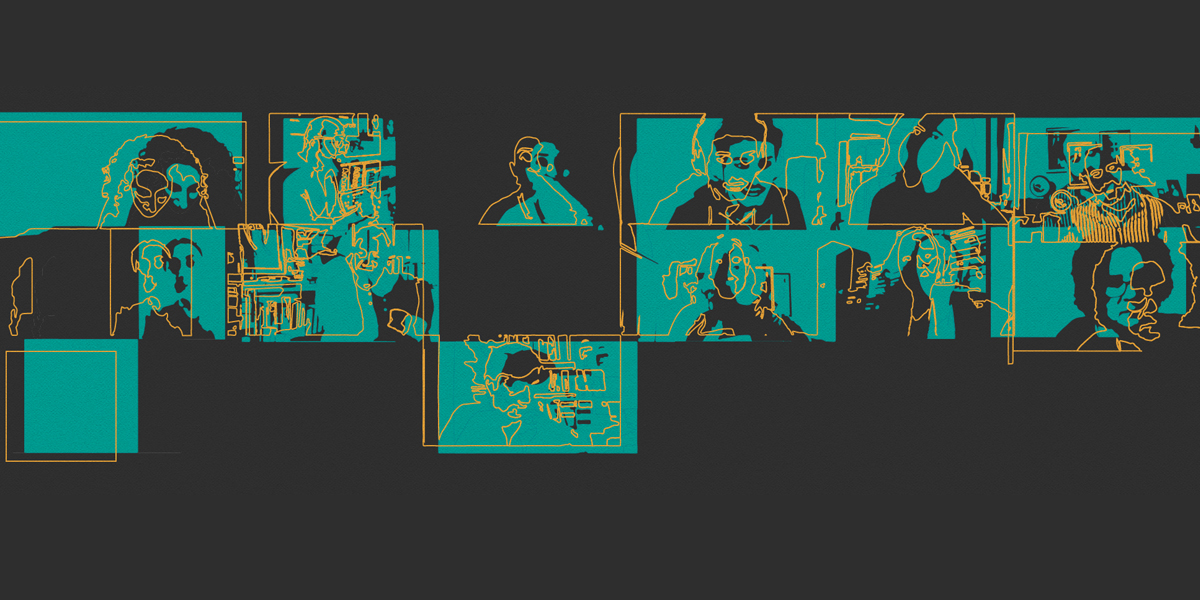[Editor’s note: This article is the fourth in a series published in collaboration with Mada Masr to mark the tenth anniversary of the Egyptian revolution. It is also available in Arabic.]
Among the three interpretations of the French Revolution discussed by French historian François Furet, Auguste Cauchan’s approach stands out. A conservative and anti-revolutionary Catholic theorist, he characterizes the Revolution as a radical departure from the language and imagination of the ancien régime. The French Revolution, a foundational moment in the revolutionary tradition, stemmed from a political imagination that was fundamentally divergent from what had preceded it — a Jacobite worldview, derived from the Enlightenment and adopted and popularized by various associations. This vision manifests in full equality between free individuals managing their own affairs independent from tradition and hierarchical society. Here, we find that all modern political concepts — equality, popular sovereignty, democracy, liberty, republicanism — are rooted in a new and radical world imagined.
What renders a rebellion or an uprising a revolution is this new radical imagination.
Similarly, Hannah Arendt defines the revolution as a new beginning and foundation that stems from liberty, an abstract notion that refers to the other abstract concept of the individual. Here, liberty is grounded in political participation. An individual is a citizen, and participation refers to the “public sphere” as a modern phenomenon and a space for discussing and deliberating political and social affairs. History is replete with rebellions and insurrections, but revolution is a modern phenomenon dating to the French, American, or perhaps Dutch revolution as the geneses of this revolutionary tradition. What unites these revolutions — however dissimilar they were — is their pioneering of a new phase based on this foundational concept of equal, free and sovereign individuals managing their own affairs.
A revolutionary tradition is defined in relation to this foundational worldview as introduced by these revolutions. Modern revolutionaries have been keen to adopt this worldview and ascribe meaning to their actions in reference to it. It is a tradition of values, meanings, and symbols that inspired and informed all the thoughts and actions of revolutionaries. The Bolsheviks, for instance, made endless references to the French revolution, as had Marx, Engels and the 1848 revolutionaries.
Can we speak of an Arab revolutionary tradition a decade after the Arab uprisings? This question can be divided into two questions: Do Arab uprisings fall into this universal revolutionary tradition? And have these uprisings introduced their own revolutionary tradition? Ten years may be too short to give a sufficient answer, but one can sketch a few remarks.
Of course, there have always been references to the revolutionary tradition, such as freedom and the slogan “the people want to overthrow the regime,” as well as the insistence on popular legitimacy, citizenship, and so on, all of which belong to said tradition. In the course of Arab uprisings, however, these moments remained limited in scale and confined to their early beginnings (Tahrir Square and the first wave of demonstrations), and they soon receded or diminished. The broad public that broke into the public arena, an event only made possible due to the uprising, was largely conservative and even reactionary. Moreover, the role of Islamism in the uprisings — their successes, perseverance, and subsequent defeats — was decisive and ought not be understated. If one were to generalize a bit, the spirit of the “uprisers” was by and large hostile to the notion of liberty, which is foundational to the public sphere itself, as they were adamant about privileges, primitive identities, and hierarchies of all forms, fully immersed in traditions and customs. The Arab uprisings have opened the public sphere by force, only to fill it with publics whose political imagination is antagonistic, or at least apprehensive, toward that very public sphere — toward the liberty necessitated by the public sphere.
This is the core paradox of Arab uprisings: The oppressed rose up without the promise of liberty. Why? Some preliminary observations can help explain.
First, enlightenment, modernization, and progress — core values of the revolutionary tradition — were in the Arab context the ideological facade of tyrannical regimes, used historically to justify their control and hegemony. That is, the revolutionary tradition was the ideology of a state in confrontation with its people and society. Indeed, the Arab state presented itself as an engine for modernization and progress in the era of populist authoritarianism, and currently, as particularly exemplified in Egypt, it has become the champion of religious reform.
Second, European revolutions came about after an era of accumulated knowledge and intellectualism, whereas the Arab uprisings represent a culmination of a long period of decline in all fields. It suffices to examine institutions such as education, or even state bureaucracy itself, and compare their performance to its levels a few decades ago.
Perhaps one ought to also consider the dynamics of urbanization and ruralization, and wonder whether there is truly any Arab city — in the normative sense of the word, bearing in mind that the word “politics” in European languages is derived from polis “city.”
Finally, we have sectarian and ethnic divisions in the East, on the one hand, and a severe Islamic-Sunni question lingering since the 19th century on the other, along with the demise of the legitimacy of religious discourse and jurisdiction. The world that had provided substance for Sharia — including the rules of Islamic politics — had ceased to exist, and its discourse was submerged in an outdated perception based on traditions and rigid hierarchies valid only within the confines of religious communities.
The paradox presented by the Arab revolutions is that, despite being an insurrection of oppressed masses against tyrannical and brutal states, they did not appear as the beginning of a revolutionary tradition grounded in liberty and ushering in a new public sphere. On the contrary, the uprisings subscribed to a different set of values and meanings that were at best suspicious of liberty, rendering themselves closer to disaffected rebellions than additions to any revolutionary tradition.




